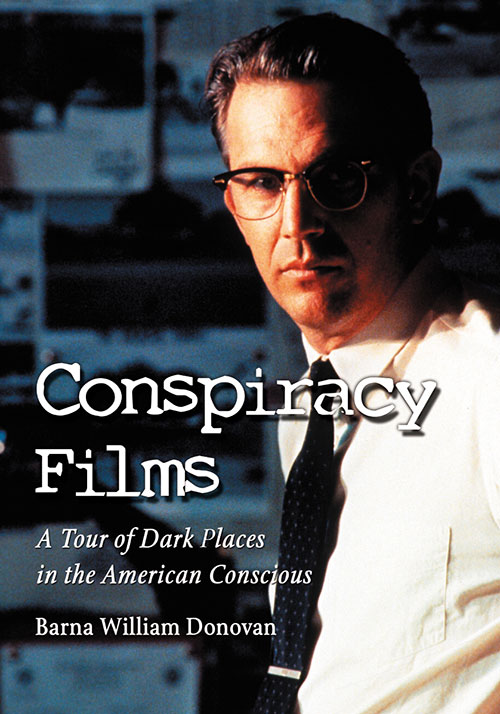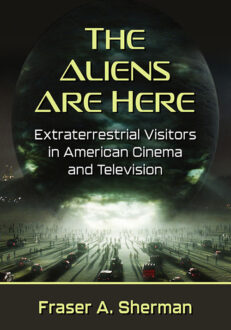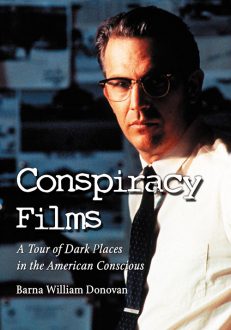Conspiracy Films
A Tour of Dark Places in the American Conscious$35.00
4 in stock (can be backordered)
About the Book
For many years, conspiracy theories have been among the most popular story elements in Hollywood films. According to the “conspiracy culture,” Government, Big Business, the Church, even aliens—all of which, bundled together, comprise the ubiquitous “Them”—are concealing some of the biggest secrets in American and world history. From The Manchurian Candidate (1962) to JFK (1991), The Matrix (1999) to The Da Vinci Code (2006), this decade-by-decade history explores our fascination with paranoia. The work paints a vivid picture of several of the more prevalent conspiracy theories and the entertainment they have inspired, not only in theatrical films but also in such television series as The X-Files, Lost and V.
About the Author(s)
Praise for the Book
- “Offers a chronological investigation of conspiracy culture as presented on screen”–Communication Booknotes Quarterly
- “Rather than just entertainment, conspiracy media content reflects larger social issues…details how such themes resonate with audiences across the political spectrum…Donovan makes a prediction about the future: that conspiracy-based entertainment is here to stay. They are a natural byproduct of an ever more complex, bureaucratic, and often overwhelming modern world.”–Everyday Sociology
Bibliographic Details
Barna William Donovan
Format: softcover (7 x 10)
Pages: 282
Bibliographic Info: notes, bibliography, index
Copyright Date: 2011
pISBN: 978-0-7864-3901-0
eISBN: 978-0-7864-8615-1
Imprint: McFarland
Table of Contents
Preface 1
Introduction: It’s All a Conspiracy … And We Love It! 3
1. The Art of Conspiracy: Defining a New Genre 13
2. Enemies Within: The Conspiracy Culture of the 1960s and ’70s 23
3. From Nuclear Apocalypse to Conspiracy: Conspiracy Films of the 1960s and ’70s 63
4. Everything Is Connected: The Conspiracy Theories of the 1980s 101
5. Aliens, Rugged Individualists, and Incompetent Conspirators: Conspiracy Films of the 1980s 121
6. Millennial Fears: Conspiracy Theories of the 1990s 144
7. Extreme Possibilities: Conspiracy Films of the 1990s 160
8. Retro and False-Flag Conspiracies: Conspiracy Theories of the 2000s 184
9. Conspiracies Never Die: Conspiracy Films of the 2000s 211
10. Conclusions: Conspiracy Theories—The Good and the Bad? 245
Chapter Notes 251
Bibliography 259
Index 265









